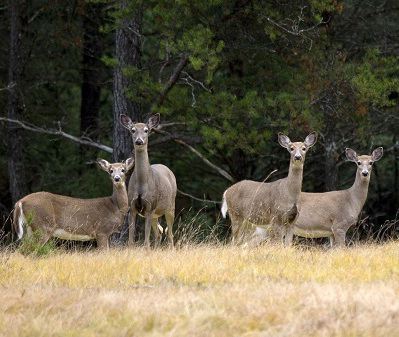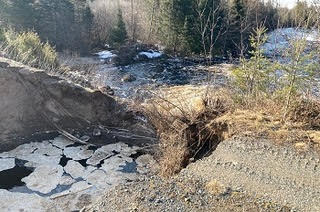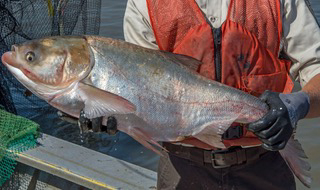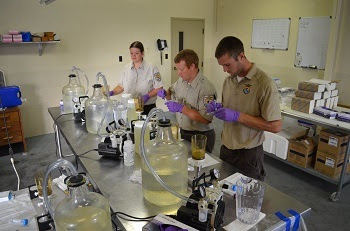Testing shows grass carp found in Michigan’s St. Joseph River was reproductively viable
The Department of Natural Resources is concerned about a recent grass carp finding in the St. Joseph River in Berrien County.
On Saturday, July 7 a bow angler harvested a 33-pound grass carp near the Buchannan Dam. Tissue samples from the fish were submitted to a laboratory at Southern Illinois University to determine its reproductive status. Although grass carp findings are not unusual in this river, the lab results confirmed the fish was a reproductively-viable grass carp, which is cause for concern.
Grass carp are considered an Asian carp species, and while they do not pose the same risk to Michigan’s waters as the much talked about bighead or silver carp, they are of concern as they eat beneficial types of aquatic plants and alter good fish habitat. Grass carp are rarely found in Michigan waters. Previous cases were usually the result of illegal stocking in ponds or movement from other states where stocking genetically altered triploid fish for aquatic vegetation control is allowed.
Other states allow the stocking of triploid fish because they believe the fish have a low probability of reproduction, but the sterilization process is not 100 percent effective. Given their potential negative effects on fish habitat, the DNR strongly opposes the use of triploid fish and reminds the public that live grass carp are illegal to possess, transport or stock in both public and private waters.
In response to this finding, the DNR’s Fisheries Division will continue to assess the distribution of grass carp in the lower St. Joseph River through electrofishing surveys this fall, monitoring movement through fish ladders and angler harvest reports. Potential points of entry will also be assessed to prevent further releases in Michigan waters.
For more information on grass carp, visit www.michigan.gov/asiancarp.







